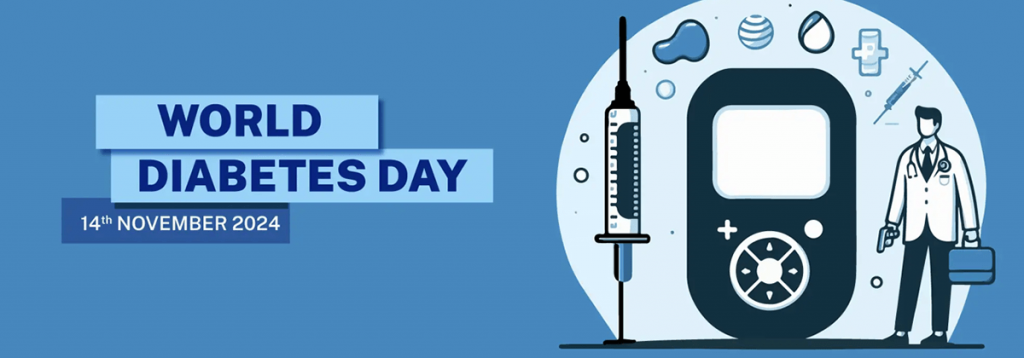Every November 14, World Diabetes Day rallies individuals worldwide to focus on diabetes, its profound impact on health, and the resources needed to manage and prevent this condition. This year, the theme, “Access to Diabetes Care,” calls attention to the critical need for equitable access to health services, medication, and information. Access to diabetes care remains a global challenge, particularly in developing nations, including Kenya. According to the Kenya Diabetes Study Group, approximately 3.3% of Kenyans have diabetes, a number that’s growing annually, partly due to lifestyle changes. As students, you are in a unique position to contribute to raising awareness and promoting healthier habits, helping to change this narrative. Notably, certain lifestyle factors can increase your risk of developing Type 2 diabetes. Late-night study sessions often lead to irregular sleep patterns, stress, and unhealthy eating habits. These factors, combined with limited physical activity, can predispose you to weight gain and insulin resistance, two significant risk factors for diabetes.

Understanding Diabetes and Its Risks
Diabetes occurs when your body can’t produce or use insulin effectively, leading to high blood sugar levels. Type 1 diabetes is usually diagnosed early in life and is not preventable. However, Type 2 diabetes, the most common form, is often linked to lifestyle factors and can be prevented or managed with the right habits. High blood sugar levels over time can damage various organs, leading to serious complications like heart disease, kidney failure, and nerve damage.
How Can You Lower Your Risk?
Adopting a balanced, healthy lifestyle in your university years can significantly reduce your risk of Type 2 diabetes. Here are ways you can take charge of your health:
1. Prioritize Physical Activity
This could include walking, cycling, or even joining a sports club on campus. Physical activity helps your body use insulin more effectively and maintain a healthy weight.
2. Eat Healthy Foods
Incorporate more whole foods like vegetables, fruits, lean proteins, and whole grains into your diet. Limit your intake of sugary drinks and processed foods high in refined carbs and unhealthy fats, as these can contribute to insulin resistance.
3. Manage Stress
University life can be stressful, and stress is linked to unhealthy habits and high blood sugar levels. Practice stress-management techniques such as meditation, deep breathing, or engaging in hobbies you enjoy. Also, seek professional help at the University Counselor’s office available 24/7.
The Role of Awareness
World Diabetes Day reminds us of the importance of access to resources and information. By spreading awareness, you can help others understand diabetes risks and the value of a healthy lifestyle. You could share information about diabetes on social media or encourage friends to join campus wellness programs.
On this World Diabetes Day, make a commitment to prioritize your health. Small changes can lead to lasting benefits, allowing you to reduce your risk of diabetes and inspire others to do the same.
Article by: Heri Manyara
Email: herimanyara95@gmail.com
